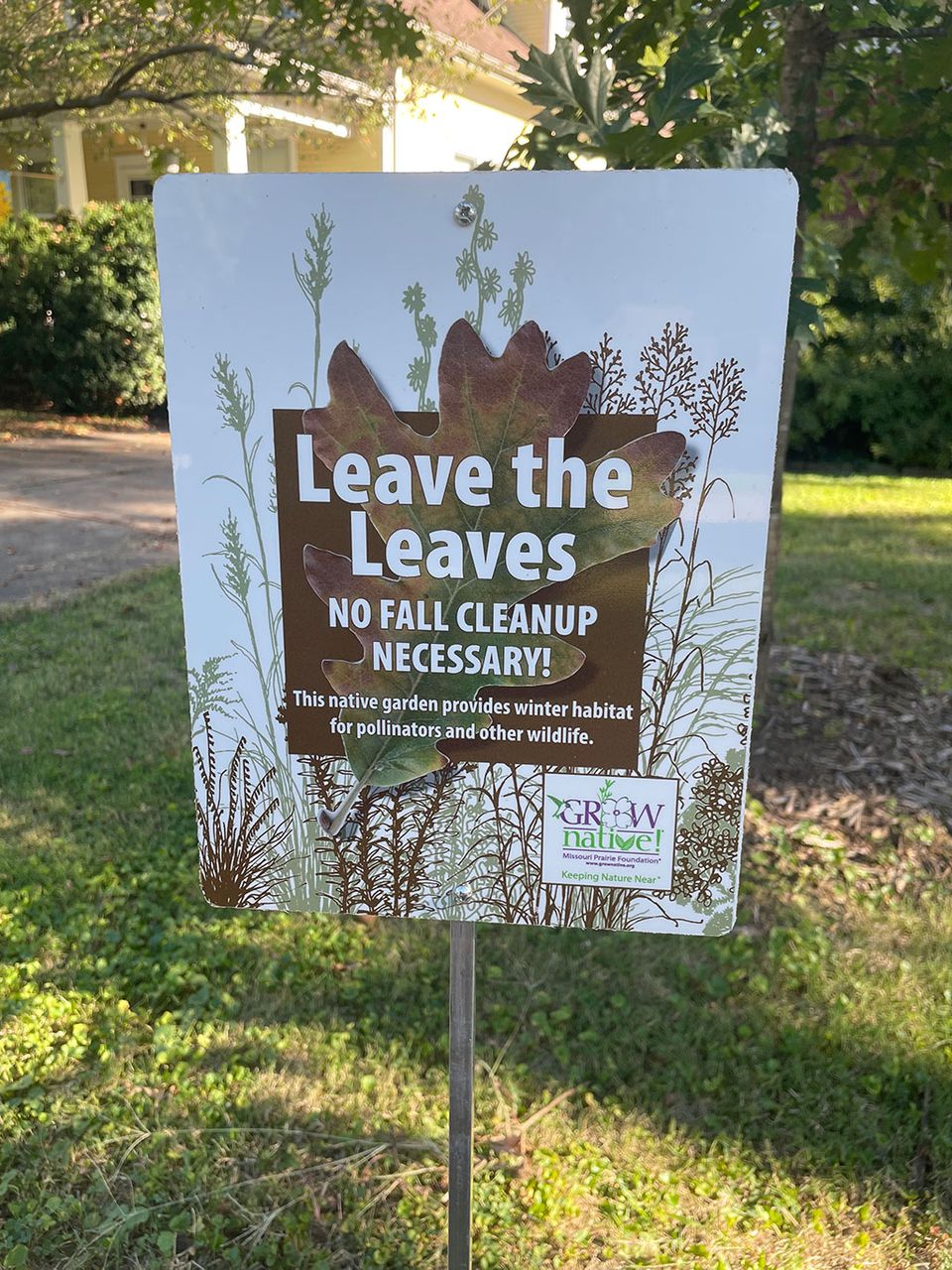
Leave The Leaves
Like many people, I used to bag up my leaves and take them to a yard waste recycling center. But after reading Doug Tallamy’s book, The Nature of Oaks, I created a “no-mow” zone in the backyard where I leave the leaves where they fall. Amazingly, when spring comes, most of the leaves are gone, recycled into dark humus. I put a “leave the leaves” sign from the Missouri Prairie Foundation in my front yard to inform passersby about the benefits of leaving the leaves.
But I should back up a little. After I retired, I made my backyard into a safe haven where I could relax and enjoy my “golden years.” I built a small water feature, with a pond and waterfall, and installed lots of native plants, hoping to entice bees, birds, bats, and butterflies. It was to be my secret sanctum, a quiet hideaway from the hustle and bustle of the outside world. But it was not to be. I became increasingly annoyed at the constant thrumming of lawnmowers, weed eaters, and especially, the high-pitched whine of leaf blowers.
The noise was bad enough, but with a little research, I discovered that leaf blowers have other bad attributes. Gas-powered blowers create high levels of air pollution. The dust and spores kicked up by leaf blowers can create breathing problems in sensitive individuals, and widely scatter pesticides, microbes, pollen, dried feces, and other pollutants.
There are good reasons to leave the leaves. Tallamy explains how important the leaf litter is to a yard’s ecological potential, especially the leaves of oaks, which host over 500 species of caterpillars. Leaf litter is where most of the insects are to be found when mother birds look to feed their young.
But I should back up a little. After I retired, I made my backyard into a safe haven where I could relax and enjoy my “golden years.” I built a small water feature, with a pond and waterfall, and installed lots of native plants, hoping to entice bees, birds, bats, and butterflies. It was to be my secret sanctum, a quiet hideaway from the hustle and bustle of the outside world. But it was not to be. I became increasingly annoyed at the constant thrumming of lawnmowers, weed eaters, and especially, the high-pitched whine of leaf blowers.
The noise was bad enough, but with a little research, I discovered that leaf blowers have other bad attributes. Gas-powered blowers create high levels of air pollution. The dust and spores kicked up by leaf blowers can create breathing problems in sensitive individuals, and widely scatter pesticides, microbes, pollen, dried feces, and other pollutants.
There are good reasons to leave the leaves. Tallamy explains how important the leaf litter is to a yard’s ecological potential, especially the leaves of oaks, which host over 500 species of caterpillars. Leaf litter is where most of the insects are to be found when mother birds look to feed their young.
- So leave the leaves, if you can, in at least part of the yard. Flowers like violets will grow back in the spring (at least they did in my yard).
- If you must do something with the leaves, grind them up and use them for compost around trees and flower beds.
- If you must bag, use a rake, the old-fashioned way, and take leaves to a yard waste compost facility. That way, at least some of the ecological benefits can be derived by someone, somewhere ― and if you use a rake, I won’t have to hear that annoying whine ringing in my ears.